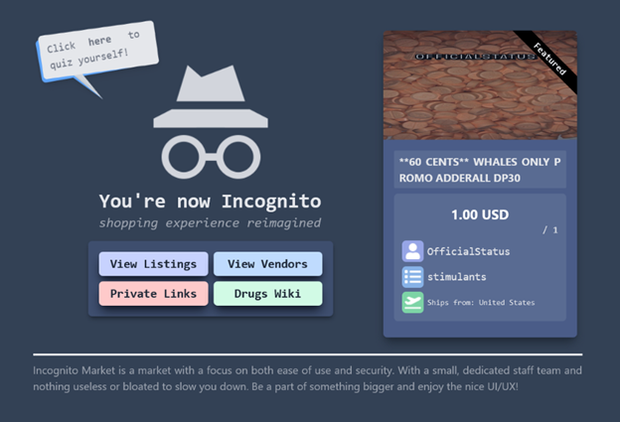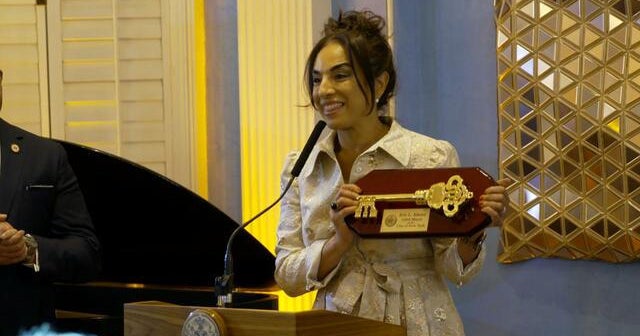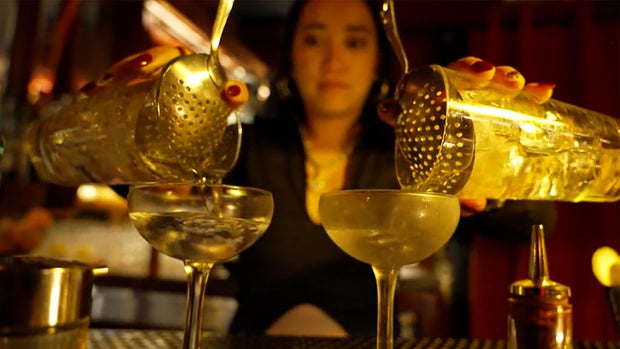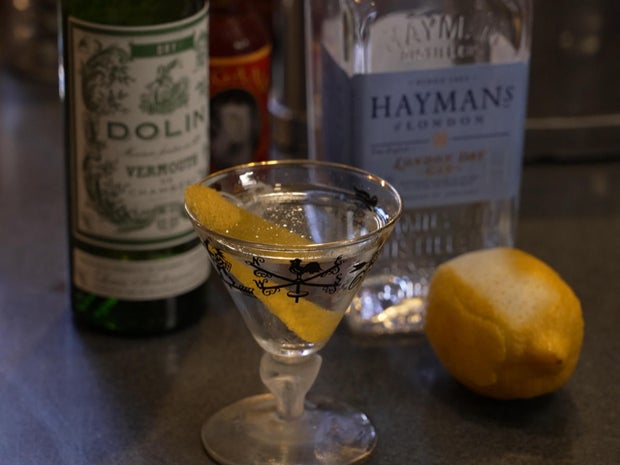CBS News
“Incognito Market” founder arrested at JFK airport, accused of selling $100 million of illegal drugs on the dark web

A 23-year-old man from Taiwan has been arrested on charges of selling at least $100 million worth of illegal drugs online through a site on the dark web known as the “Incognito Market.”
Rui-Siang Lin, also known as “Pharoah,” was arrested at John F. Kennedy Airport in New York on Saturday and was to appear in court on Monday, the Justice Department said, calling it “one of the largest illegal narcotics marketplaces on the internet.”
“As alleged, Rui-Siang Lin was the architect of Incognito, a $100 million dark web scheme to traffic deadly drugs to the United States and around the world,” Attorney General Merrick Garland said in a statement.
Incognito Market, which was shut down in March, was an online dark web marketplace that allowed users to buy and sell illegal drugs anonymously, according to the Justice Department.
Hundreds of pounds of cocaine, methamphetamines and other drugs were sold on Incognito Market since its launch in October 2020, it said.
“Under the promise of anonymity, Lin’s alleged operation offered the purchase of lethal drugs and fraudulent prescription medication on a global scale,” said James Smith, an assistant director in the FBI’s New York office.
Users of Incognito Market were able to search thousands of listings for illegal narcotics, including heroin, cocaine, LSD, MDMA, oxycodone, methamphetamines, ketamine, and alprazolam.
Incognito Market included “many features of legitimate e-commerce sites such as branding, advertising, and customer service,” the Justice Department said. The indictment includes several images from the site, including its splash page.
Justice Department
Vendors paid five percent of the purchase price of every sale to “Incognito Market,” providing Lin with millions of dollars of profits, the Justice Department said.
Lin faces up to life in prison if convicted of narcotics conspiracy.
Taipei’s foreign ministry spokesman Jeff Liu said during a regular briefing Tuesday that Lin had been working since November at Taiwan’s embassy in St Lucia, an eastern Caribbean nation that is one of the Asian island’s few allies.
He had applied to work as part of the embassy’s technical corps in lieu of military service — mandatory for Taiwanese men — and had “behaved normally.”
Expected to be discharged in July, Lin applied for leave and left St Lucia on May 18, Liu said.
He “was scheduled to go to Singapore via New York when he was arrested by the police in New York,” he said, adding that Taiwan was closely monitoring the case.
“This arrest underscores the dedicated, ongoing efforts of law enforcement to identify and dismantle illicit drug networks operating from every shadowy recess of the marketplace,” NYPD Commissioner Edward A. Caban said in a statement.
CBS News
Serving up home-cooked dog food

Watch CBS News
Be the first to know
Get browser notifications for breaking news, live events, and exclusive reporting.
CBS News
What makes a martini a martini?

Watch CBS News
Be the first to know
Get browser notifications for breaking news, live events, and exclusive reporting.
CBS News
What makes a martini a martini?
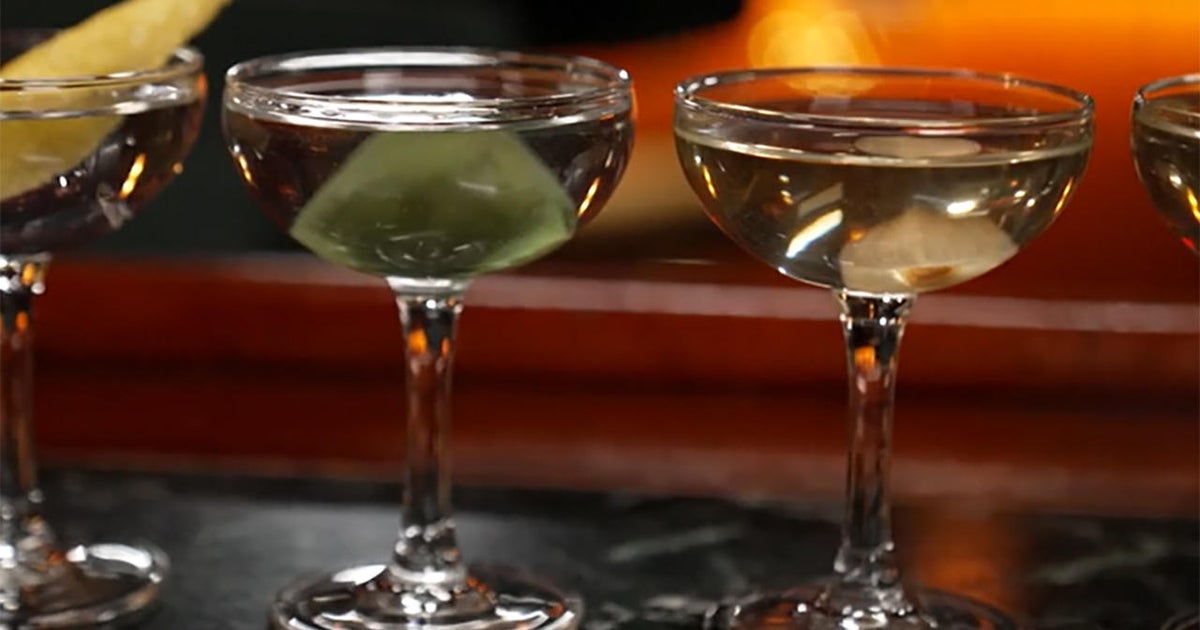
Nowadays, what makes a martini a martini? Robert Simonson, who wrote a book about the martini, said, “It’s funny: it’s strict and loose at the same time.”
Ten Speed Press
Everyone seems to have an opinion about the cocktail: “Ingredients, proportions, garnishes – it’s all subject to debate,” Simonson said. “I’m a purist. I would think it needs to be gin and vermouth. But I’m willing to bend and say, ‘Okay, vodka and vermouth as well.’ [However,] if there’s no vermouth in there, I don’t know how you can call it a cocktail.”
Simonson says the martini was probably named after a vermouth company. It was invented in America in the 1870s or ’80s when bartenders mixed gin with vermouth, a fortified wine made with herbs and spices. “It’s a very big player in cocktail history,” he said.
In the early 20th century, the “very-dry” martini became very-popular: Ice cold gin or vodka, garnished with a lemon twist, or an olive, or an onion, but only a little vermouth (or maybe not even a little).
Samantha Casuga, the head bartender at Temple Bar in New York City, says the reason why many people might not want vermouth in their martini is because, for years, vermouth was stored improperly. “It should be in the fridge,” she said.
CBS News
Casuga’s classic martini is two parts gin, one part vermouth, with a twist of lemon. She suggests that you probably shouldn’t order it the way James Bond does – shaken, not stirred. Casuga says she’s always stirring, but some people like the show behind the bar when a bartender shakes their cocktail. “Definitely, people love a good shake,” she said.
People also love to have a martini made just the way they want it. But Casuga understands why they might be so specific: “To have your own preferences, not only listened to and then executed, is, like, that’s luxury itself.”
Writer Robert Simonson says that a martini can also add a little luxury to your Thanksgiving. “It actually makes very good sense for Thanksgiving,” he said. “It will whet your appetite for the meal to come.
“There are very few American inventions more American than the martini. So, an American holiday, American drink.”
CBS News
For more info:
Story produced by Mary Raffalli. Editor: Remington Korper.
“Sunday Morning” 2024 “Food Issue” recipe index
Delicious menu suggestions from top chefs, cookbook authors, food writers, restaurateurs, and the editors of Food & Wine magazine.


